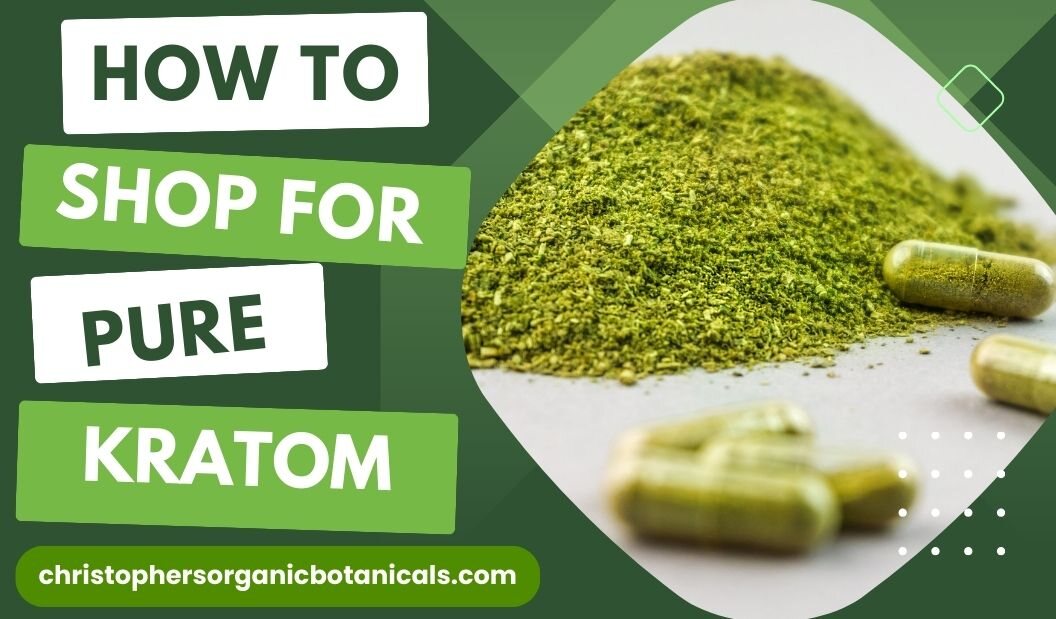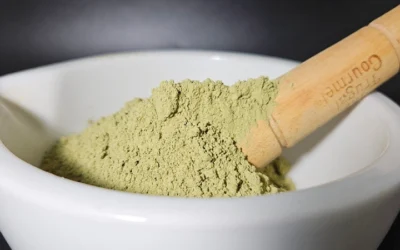Kratom Caution: How To Get Pure Kratom for a True Experience?
Kratom, a tropical evergreen tree from the coffee family, has been at the center of a heated debate. While many tout its ability to help them, the lack of regulation casts a shadow over its safety. As a botanical substance, Kratom’s active alkaloid mitragynine, along with numerous other alkaloids is what makes it unique. Kratom is a cousin to coffee, and as like many of us know caffeine is the main active alkaloid in coffee.
Laboratory testing is crucial for Pure Kratom products. This brings us to the crux of today’s discussion: Which Kratom brands should consumers avoid to ensure safety and integrity in their Kratom experience?
Everyone wants to know what Kratom brands to stay away from, so we will be discussing what to look for in an Online Kratom Vendor. It isn’t as much about the kratom brand, but more about the practices they uphold. Which is the top-rated brand for kratom to get pure Kratom?
What are the most important aspects of choosing kratom brands?
The Importance of Research and Safety
Before delving into brands to avoid, let’s highlight the importance of safety. Unlike FDA-approved drugs, Kratom isn’t subject to rigorous testing, making it critical for consumers to do their homework. Research the brand, check for laboratory testing, read reviews, and understand the source of their Mitragyna Speciosa.
Unverified and Untested Brands
The first red flag is a lack of verification and testing. Any reputable brand in the kratom industry will have its products tested and analyzed by independent laboratories for contaminants such as heavy metals, E. coli, salmonella, and mold. Brands that fail to provide these basic assurances of quality should be approached with caution.
Brands with a History of Recalls
A history of product recalls is a warning sign. Recalls show that a product is unsafe or mislabeled after it reaches the market. Keep an eye on FDA recalls and avoid brands with frequent safety issues.
Brands Making Unsubstantiated Health Claims
The FDA cracks down on any herbal supplements or dietary supplement brand that make false health claims. Any brand that promises to cure, treat, or prevent diseases without scientific backing should be avoided. These claims are not only legally dubious but can also be dangerous if they lead consumers to choose Kratom over proven medical treatments.
Brands with Dubious Business Practices
A brand’s reputation isn’t only about the product; it’s also about their business ethics. Brands with a track record of poor customer service, lack of transparency, or engagement in misleading online marketing should be avoided.
The Use of Additives and Fillers
Pure Kratom should be the only ingredient in your product. Brands that add fillers or other substances can dilute the potency and increase the risk of side effects or contamination. Always check the ingredient list online.
Questionable Sourcing and Sustainability
Kratom should be sourced responsibly. Brands that do not provide information on their sourcing practices may be engaging in unsustainable harvesting, which can harm the environment and lead to inferior quality products.
Supporting the Kratom Community
Ensuring that the brand supports the kratom community and kratom science is of upmost importance. Furthering research and supporting the community is important for a kratom brand. Making sure that the community is satisfied and not taken advantage of as consumers.

A vibrant image depicting a supportive community around a large kratom leaf, with people of diverse backgrounds.
Brands to Approach with Caution
While it is not appropriate to call out specific brands without concrete evidence of malpractice, certain categories of brands generally raise concerns among the Kratom community:
- Brands Without Transparent Sourcing: If a brand is not open about where they source their Speciosa, this lack of transparency is concerning.
- Gas Station Kratom Brand: Often, Mitragyna Speciosa sold in non-specialty locations such as gas stations or convenience stores do not have the same experienced staff to answer questions about kratom.
- Brands With a High Volume of Negative Reviews: While one or two bad reviews could be outliers, a consistent pattern of negative feedback indicates a problem.
Guidelines for Finding Reputable Brands To Get Pure Kratom
In contrast, here’s what you should look for in a reputable Kratom brand to get pure Kratom:
Third-Party Lab Testing: This ensures that the Mitragyna Speciosa is free from contaminants and that its alkaloid content is as advertised.
Clear Labeling: Products should have clear, accurate labels listing strain, dosage, and usage instructions.
Transparency: Reputable vendors are typically open about their sourcing and good manufacturing practices.
Educational Resources: Good brands often provide ample information, or blogs to help consumers make informed decisions.
Active and Responsive Customer Service: Reputable brands stand by their product and are ready to address customer concerns.
Industry Affiliations: Look for brands that are members of industry groups like the American Kratom Association (AKA), which advocates for safe use and responsible regulation.

In a store, a conscientious customer holds a packet of kratom, appearing contemplative as they examine a guidebook or checklist labeled “Kratom Brands to Steer Clear Of.
The Bigger Picture: Advocacy and Regulation For Pure Kratom
As consumers, choosing reputable brands is only part of the equation. Advocacy for better regulation can help ensure that all products meet minimum safety standards.
The AKA, for instance, pushes for the Kratom Consumer Protection Act, which aims to regulate Mitragyna Speciosa production and sales.
Conclusion – Pure Kratom Brands
To protect oneself from subpar Kratom brands, education and caution are the ultimate weapons. Consumers need to arm themselves with knowledge about Kratom and its various strains, as well as the reputable vendors who offer pure Kratom products. By conducting thorough research and selecting vendors that adhere to the highest standards, individuals can ensure that they are purchasing Mitragyna Speciosa that is effective.
One of the key aspects of education is understanding the different types of Mitragyna Speciosa available in the market. Kratom comes in various strains, each with its own unique properties and effects. By familiarizing themselves with the different strains, consumers can make informed decisions about which type of Kratom is best suited to their needs.
Furthermore, consumers should also educate themselves about the sourcing and manufacturing processes of Kratom. Reputable vendors will provide detailed information about where their Kratom is sourced from, how it is harvested, and how it is processed. This transparency allows consumers to verify that the Mitragyna Speciosa they are purchasing is of high quality and has been produced in a safe and ethical manner.
In addition to education, exercising caution is equally important. Consumers should be wary of vendors who make exaggerated claims about the benefits of Kratom or offer products at unusually low prices. These could be red flags indicating subpar quality or potentially dangerous products. To ensure that the chosen vendor has a track record of providing reliable and pure Kratom, it is advisable to read customer reviews and seek recommendations from trusted sources.
By combining education and caution, consumers can enjoy the numerous benefits that Kratom has to offer while minimizing the risks associated with subpar brands. Taking the time to research and select reputable vendors not only ensures the quality of the product but also contributes to the overall safety and well-being of individuals who incorporate Mitragyna Speciosa into their wellness routines.
Remember, if a brand or product seems too good to be true, it probably is, so avoiding that brand of kratom would be best. Stay informed, stay skeptical, and prioritize safety to ensure your mitragyna speciosa experience is a positive one.






0 Comments